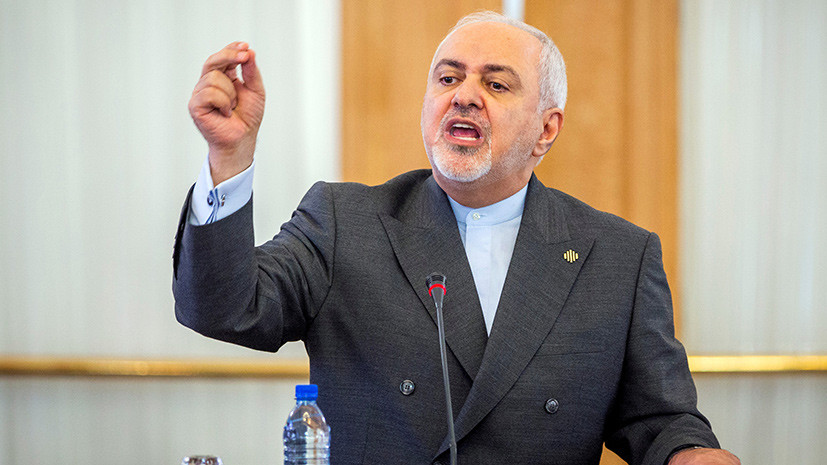On Thursday, September 5, Iran intends to proceed to the third stage of suspension of part of its obligations under the Joint Comprehensive Plan of Action (JCPOA) regarding the Iranian nuclear program. This was stated in the Ministry of Foreign Affairs of the republic.
According to Abbas Mousavi, the spokesman for the foreign affairs agency, the third stage of the reduction of obligations has already been prepared. At the same time, it will become much tougher than the first and second steps in this direction.
“If European countries do not take the necessary measures by Thursday (September 5, RT ), we will send them a letter based on the decision made on May 7 and announce the implementation of the third stage,” said Iranian Foreign Minister Mohammad Javad Zarif.
According to him, Tehran never left the negotiations and always indicated its readiness to adhere to the terms of the nuclear deal. At the same time, the diplomat explained that if the countries of Europe begin to fulfill their obligations, Iran will react in a mirror way. In this regard, a delegation of economic specialists headed by Deputy Foreign Minister Abbas Arakchi is sent to Paris.
“Tehran will be satisfied if they fulfill their obligations. Otherwise, we will proceed to the implementation of the third stage, ”Zarif explained.
In late July, Russian Deputy Foreign Minister Sergei Ryabkov, following a meeting of a joint commission on the Iranian nuclear deal, warned that Iran intends to continue the refusal of its own obligations in the first decade of September. At the same time, he pointed out that, despite the calls by Russia, China, Great Britain, France and Germany to abandon this step, such a development of events looks “completely unrealistic” without any additional conditions.
- Iranian Foreign Minister Mohammad Jawad Zarif
- © Nazanin Tabatabaee / WANA (West Asia News Agency) via REUTERS
Recall that in May 2018, the United States withdrew from the JCPOA, which was approved by the UN Security Council in 2015. In addition, the Donald Trump administration has resumed sanctions against Iran.
A year later, Tehran’s authorities announced the start of a process to partially terminate their nuclear deal obligations. First, the Iranian authorities suspended for 60 days the sale of excess enriched uranium and heavy water, which under the terms of the agreement were to be sold abroad. After this period, the United States did not return to the implementation of the JCPOA. In this regard, in July, the Islamic Republic began the second stage, which consists in the fact that Iran began to enrich uranium above the level of 3.67% stipulated by the nuclear deal.
The operation of the INSTEX mechanism
As Vladimir Bruter, an expert at the International Institute for Humanitarian and Political Studies, noted, a lot of things in this matter will depend on the mechanism for settlements with Iran created by European countries - INSTEX.
“Iran’s deputy foreign minister is traveling to Paris. Obviously, they must understand each other's position. The settlement system, as I understand it, did not work properly. Europeans are not in a hurry, which means that Iran has well-founded questions. We will see how the negotiations go, at the moment I would not be too optimistic, ”the expert emphasized.
According to him, during the upcoming negotiations, both parties expect from each other to provide appropriate guarantees.
“The United States will, as usual, react sharply, but in this case, the basis for further actions depends on the Europeans. And if Iran sees that the settlement mechanism and the oil trade mechanism exist, then the severity of the issue will subside by itself. And if it doesn’t exist, then tension will continue to accumulate, ”he emphasized.
In turn, as Gevorg Mirzayan, assistant professor of political science at the Financial University under the Russian government, notes, Iran warned in advance that it was forced to take such steps, as other participants in the JCPOA did not fulfill their obligations.
“Such a step-by-step exit is explained by the fact that Tehran expects effective steps from the European Union. On the American side, we can expect a “we don't care” reaction, and on the European side, regrets that the deal is falling apart, public accusations. Of course, this is not what Tehran needs. They want concrete steps to save the deal from the EU, to protect against US sanctions. The EU has already proposed a special mechanism for making payments to Tehran, which should not be controlled by US sanctions. Let's see how it will work, ”explained the interlocutor of RT.

